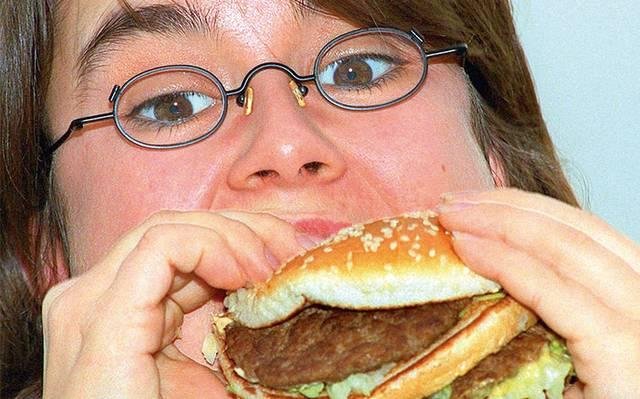Present in many of the foods that cost us to give up as ice cream, milkshakes, cookies or industrialized cakes, this type of fat is highly detrimental to health
There are different types of fats in food: monounsaturated, polyunsaturated, saturated and trans or hydrogenated. The monounsaturated are present in olive oil, avocado and many nuts.
The polyunsaturated ones are constituted basically by the omega 3 and 6 fatty acids, these; the first ones are in the so-called blue fish, such as mackerel, salmon or sardine, among others. The omega 6, on the other hand, are found in several vegetable oils such as sunflower and soybean oils.
All stars find healthy fats.
Animals and their derivatives
Saturated fats are present in foods of animal origin, but also in coconut and palm oils. These fats increase the levels of LDL cholesterol, known colloquially as bad cholesterol, so consuming them in excess can have negative consequences on cardiovascular health.
Finally, trans fats or hydrogenated fats are the most harmful to health. "The first effect of trans fatty acids is to increase total cholesterol levels, especially LDL (bad) cholesterol, while lowering HDL (good) cholesterol," says José Luis Colomer, cardiologist at the Vithas Nisa Aguas Vivas Hospital , in Valencia, Spain, who explains that HDL cholesterol "exerts a job of cleaning the arteries, essential to preserve their health".
For his part, the vice president of the Spanish Heart Foundation, José Luis Palma, details that there are two sources of trans fatty acids: natural and artificial or industrial.
The first comes from ruminant animals such as cows, sheep or goats. "The rumen bacteria of these animals perform a partial hydrogenation of a part of the oleic (monounsaturated), linoleic and linolenic (polyunsaturated) fatty acids found in the leaves, stems and roots they eat, as well as the content of the feed. "
These trans fatty acids are absorbed and incorporated into the muscles and milk of animals. For this reason, they are found, albeit in small quantities, in beef, lamb and kid, as well as in whole milk.
In this sense, they indicate that approximately 5% of the total consumption of trans fatty acids would come from the fat of ruminants, through the intake of products such as butter, cream, whole milk or fatty meat.
On the other hand, trans fats of industrial origin are created by partially hydrogenating vegetable oils.
"The process involves adding hydrogen under pressure in the presence of nickel, a metal that is used as a catalyst for the reaction. If the hydrogenation is total, a saturated fat is formed. But if the hydrogenation is partial, a mixture of saturated, monounsaturated, polyunsaturated, cis and trans fatty acids is produced ", detail the experts of the Spanish Heart Foundation.
In addition, "industrial cakes, cookies, precooked dishes, snacks, fried foods such as potatoes, corn and other snacks, along with ice cream, creams and smoothies are the foods that contain the highest amount of trans fats," said these specialists.
#Healthy nutrition

In this sense, they clarify that a greater consumption of one gram per day of trans fat produces an increase in the rigidity of the carotid artery. This same effect is observed with the consumption of saturated fat, but in quantities greater than 10 grams per day.
"That is to say, trans fat has the same effect on the arterial wall as saturated fat, but with a much lower amount of consumption," they clarify.
The food industry uses trans fats because "they take longer to become rancid, they support better the high temperatures and, in general, they conserve food better", explain from Vithas Hospitals.
Similarly, the World Health Organization (WHO) states that industrially produced trans fats are contained in hardened vegetable fats such as margarine and ghee (clarified butter) and are usually present in snacks and baked or fried foods.
"Manufacturers often use them because they have a longer shelf life than other fats. However, you can use healthier alternatives that do not affect the taste or the cost of food, "says the international body.
The WHO estimates that each year the intake of trans fats causes half a million deaths from cardiovascular diseases.
This entity has published a guide called Replace which indicates the steps to follow to eliminate trans fatty acids from industrial production of the global food supply. Among others, it includes the recommendation to promote its replacement by healthier fats and oils and the approval of regulatory measures to eliminate them.
WHO recommends that total trans fat intake be limited to less than 1% of total energy intake, which translates to less than 2.2 grams per day with a 2,000-calorie diet.
"Diets rich in trans fats increase the risk of heart disease by 21% and death by 28%," he says.
Integral approach
Denmark was the first country to impose restrictions on trans fats of industrial production in 2003 and other places have followed suit. One of them is New York, where in 2008 the use of this type of fat was prohibited.
"Banning trans fats in New York City helped reduce the number of heart attacks without changing the taste or cost of food, and eliminating its use worldwide can save millions of lives. A comprehensive approach to tobacco control has allowed us to progress globally in the last decade more than almost anyone thought possible. Now, a similar approach to trans fats can help us achieve this kind of progress against cardiovascular disease, another of the leading causes of preventable death in the world, "said Michael R. Bloomberg, WHO global ambassador for cardiovascular diseases. noncommunicable diseases and former mayor of New York.
"WHO seeks to collaborate with governments, the food industry, the academic world and civil society, in order to make food systems healthier for future generations, especially by eliminating industrially produced trans fats," Dr. Tedros Adhanom Ghebreyesus, Director General of WHO, manifested.


Source
Direct translation without giving credit to the original author is Plagiarism.
Repeated plagiarism is considered spam. Spam is discouraged by the community and may result in action from the cheetah bot.
More information on Image Plagiarism
If you believe this comment is in error, please contact us in #disputes on Discord
Please note that direct translations including attribution or source with no original content is also considered spam.
Congratulations @masterfood! You have completed the following achievement on Steemit and have been rewarded with new badge(s) :
Click on the badge to view your Board of Honor.
If you no longer want to receive notifications, reply to this comment with the word
STOPTo support your work, I also upvoted your post!
Do not miss the last post from @steemitboard:
SteemitBoard World Cup Contest - Brazil vs Belgium
Participate in the SteemitBoard World Cup Contest!
Collect World Cup badges and win free SBD
Support the Gold Sponsors of the contest: @good-karma and @lukestokes